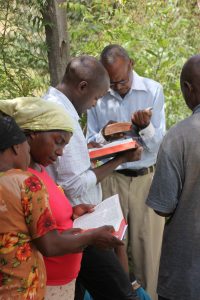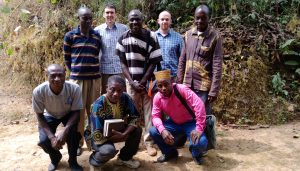To find out more about the work of the CBM and locations of where Christadelphians meet in Europe, click on the country on the map or on the name of the country below the map.
Europe
North and West Europe
Compared with other CBM areas, West European countries are easy to reach, with none of the climatic extremes, physical discomforts, communication difficulties and culture shock that await visitors to Africa and the Caribbean. Yet, despite much preaching work, the number of brothers and sisters has remained small.
One reason for this is deeply-rooted, centuries-old religious tradition. Particularly in Catholic countries, few have the independence of mind to seek Bible truth for themselves. In Protestant countries, where there is more of a tradition of personal Bible reading, there has been a little success, particularly in the Netherlands and Germany.
The greatest adversary however is materialism, which means that people are preoccupied with what they think of as ‘the good things of life’ and do not feel the need for God.
Austria Belgium Czech Republic Estonia France Germany
Greece Italy Malta Netherlands Poland Portugal
Scandinavia – Denmark, Norway and Sweden Spain Switzerland
South East Europe (including north and west Asia and the Middle East)
This is the newest area for CBM work. It started with preaching work in Esperanto in 1980s. The learning of the ‘world language’ Esperanto was encouraged by the communists and so this was a way of reaching people in communist countries. After the fall of communism at the end of the eighties, we were able to preach more freely in these countries, first by correspondence courses and then by preaching visits. In Bulgaria and Russia, however, under the influence of the Orthodox Church, laws have been passed which restrict our preaching (and that of other Western churches).
The problems of preaching in East Europe are:
- its size (it takes a week to cross Russia by train)
- the diversity of languages and cultures – few speak English!
- problems with government relationships – the communist legacy
- hardship and poverty caused by economic failure
- lack of adequate communications
The work is expanding rapidly and we need more workers, especially those with the appropriate language skills, and most of all, those who can stay in a country for an extended period as resident missionaries.
In the Middle East, the Truth has reached a good number of the Indian population working in Oman and United Arab Emirates to the extent that we now have about 60 members in 3 ecclesias. We also have an ecclesia of 24 in Israel.
Adriatic states – Albania, Bosnia & Herzegovina, Croatia, Kosovo, Macedonia, Montenegro, Serbia, Slovenia
South Caucasus states – Armenia, Azerbaijan, Georgia
Belarus, Kazakhstan Russia and Ukraine
Work in this part of East Europe started with preaching work in Esperanto in 1980s. The learning of the ‘world language’ Esperanto was encouraged by the communists and so this was a way of reaching people in communist countries. After the fall of communism at the end of the eighties, we were able to preach more freely in these countries, first by correspondence courses and then by preaching visits.
Those years of ‘freedom’ have now passed, however, with restrictions on worship and preaching in place in Belarus and Russia due to the power of the orthodox church and in Kazakhstan because it is a mainly muslim country. These restrictions affect our ability to preach openly and it is not possible to either register as a recognised religion or own meeting rooms for brothers and sisters to meet in.
The common link for our work in Belarus, Kazakhstan, Russia and Ukraine has been the Russian language, a legacy of communism, though this is being chipped away at as nations move away from their old Russian ties (Ukraine and Kazakhstan in particular).
3 of the 4 countries in this region are massive, leaving brothers, sisters and contacts often hundreds of miles from their nearest Christadelphian, so regional visits and annual Bible schools are a key part of our work, to bring them together as far as is feasible. We are also now supporting the use of zoom, to allow those who have the technology to meet each week for online breaking of bread and readings sessions, though they may live in different countries.



